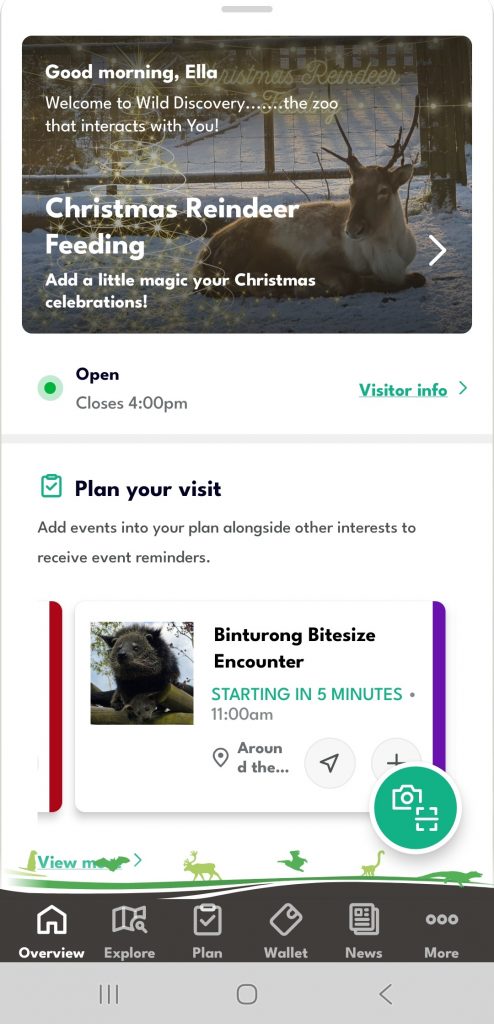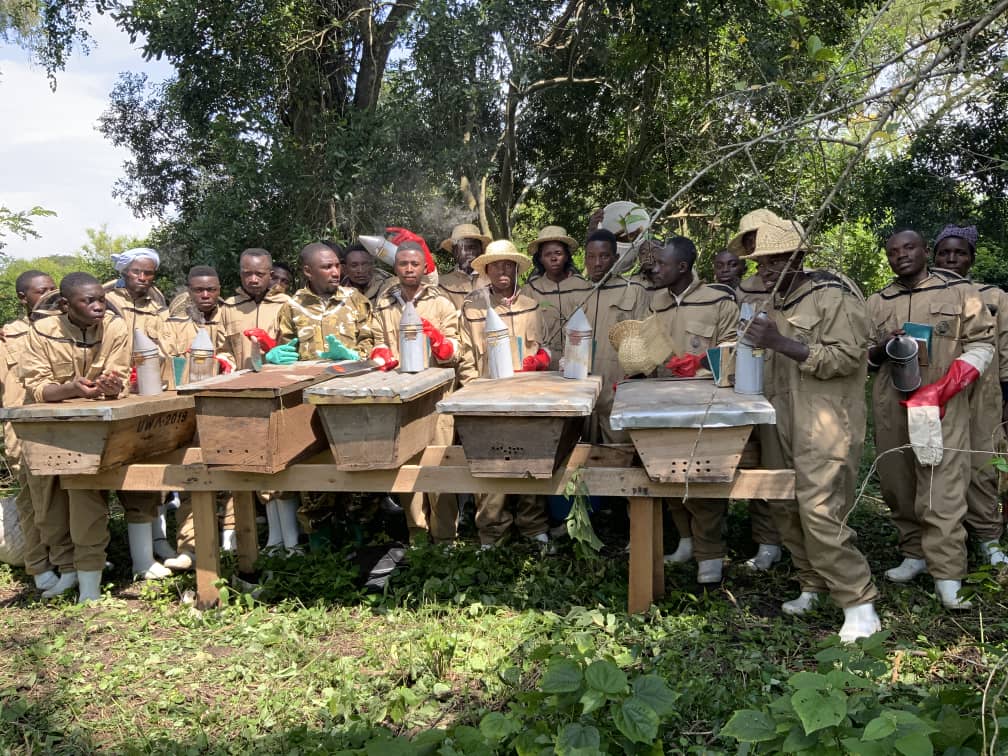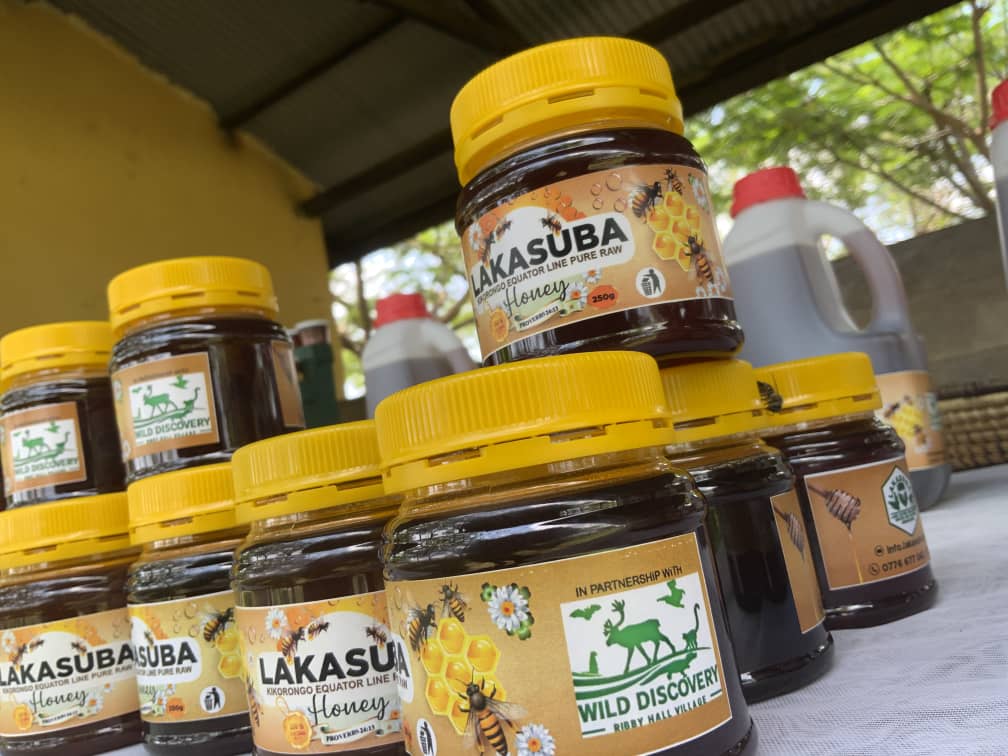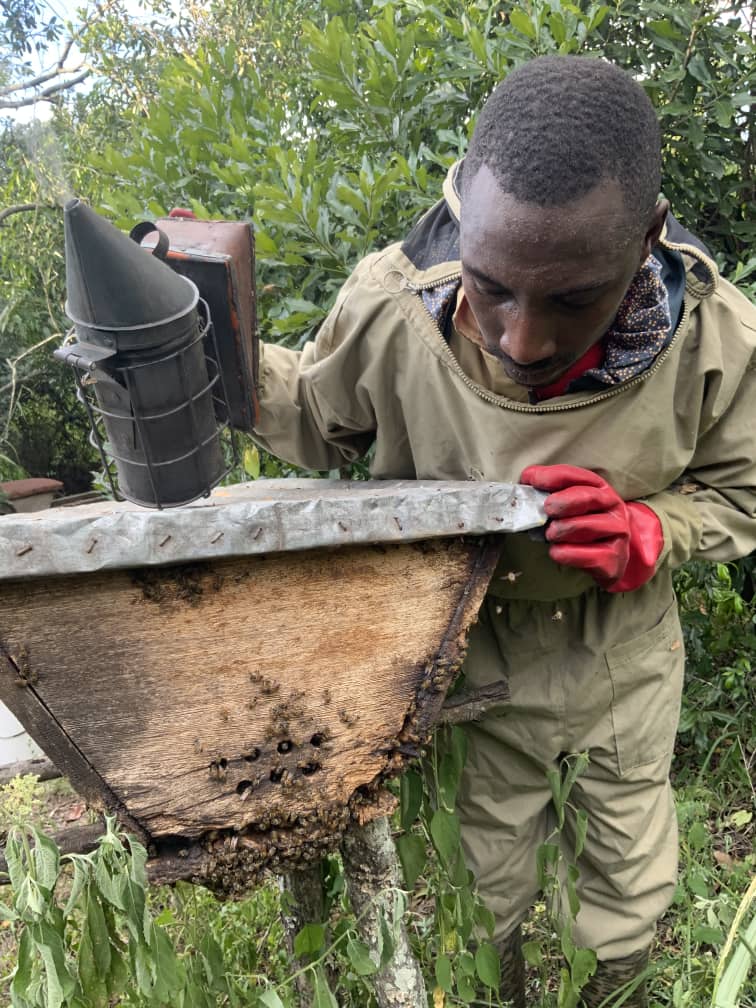
The Wild Discovery App – everything at your fingertips!
Wild Discovery has been working with n-gage to develop and create an app bespoke to Wild Discovery. It is now available and free to download from your favourite app store! Just search for Wild Discovery.
The app allows users to see all the animals here at Wild Discovery, plan their visit by scheduling which talks they would like to attend, book onto any animal encounters, purchase animal adoptions and much more.
“We’re really excited to launch our new Wild Discovery app and bring a fresh digital dimension to the zoo experience,” said Neil Trickett, Director at Wild Discovery. “The app will give our visitors an engaging and interactive way to explore the zoo, discover more about our animals, and get involved with our conservation work. It’s a fantastic opportunity to connect more closely with our guests, both during and after their visit. The data insights provided through the n-gage.io platform will also help us better understand visitor behaviour and preferences, allowing us to continually improve the experience we offer and tailor our activities to what our guests enjoy most.”
Download the app here from Google play (android) https://play.google.com/store/apps/details?id=io.ngage.wilddiscovery&pcampaignid=web_share
Download the app here from Apple Store (IOS) https://apps.apple.com/gb/app/wild-discovery/id6748083738

The small zoo having a big impact on saving wildlife
World Wildlife Day is Monday 3rd March and is organised by the United Nations to celebrate the unique roles and contributions wildlife plays for people and the planet. Here at Wild Discovery, a small zoo in Lancashire, we are celebrating the conservation projects that we run based out in Queen Elizabeth National Park, Uganda which are all focused on conserving wildlife species for the benefit of the local communities.
“The Ugandan Bee Project” aims to reduce human-wildlife conflict between farmers living around the Park from large wildlife, mainly elephants. The elephants see the crop fields as an easy and tasty meal, the farmers see the elephants as a pest as they destroy the crops; this leads to conflict, often fatal for both elephant and farmer. The Ugandan Bee Project is supporting farmers in the community by providing beehives which can be placed around their crop fields and training to maintain their beehives. It has been proven that elephants do not like the “buzzing” made by bees and will avoid an area, making the beehives a safer and more effective deterrent, helping to reduce conflict.
The farmers also learn to harvest the honey which is processed in the projects factory and sold to locals and tourists, providing the farmers with an additional income. Since this project started 5 years ago, there are over 500 beehives installed in four communities. By the end of 2025 we aim to have 2000 beehives installed in 10 communities.
Community engagement is vital for long-term sustainability of this project and to support the communities further the project has set up several working groups which provide skills and income opportunities for the community members. These working groups include a Women’s Chicken Group, sewing, welding and joinery.
“Living with Nile Crocodiles” is another human-wildlife conflict project based at the Katwe fishing village in the Park. The villagers are using the lake to fish, collect drinking water, bathe and wash clothes. Being an ambush predator, the super large Nile Crocodiles lie in wait, once the water is disturbed the crocodiles attack, often resulting in serious injury or death for the villagers. The first step of this project is to provide safety signage around the lake and to produce an information booklet that can be distributed to the students in the local area.
“Bwenanule Crater Lake Restoration Project” aims to rewild the area into a wildlife rich environment, creating a tourism hotspot and economic opportunities for the local community. The land around the crater has been severely degraded due to agriculture, deforestation and pollution. To start, a tree nursery will be built where native trees can be sown and grown ready for planting. The aim is to plant 1 million trees in the next 10 years, whilst monitoring the growth and return of wildlife. Local teenagers will attend a specialist university to learn how to develop and implement a tourism plan for the community, providing a long-term sustainable future for the crater and the community.
Neil Trickett, Wild Discovery Zoo Director explains “we may only be a small zoo, but with these projects we are already having a big impact on the lives of those living in the Park, which in turn is positively benefitting the wildlife. It is down to the dedication and passion from the team and the support from the Ugandan authorities that it has all been successful. As the project grows and more communities get involved, the greater the future is for Queen Elizabeth National Park’s wildlife and the communities that are living alongside this wildlife.”
Starting on Monday 3rd March, the Wild Discovery team will be showcasing the project, its aims, achievements and the people on the ground, if you would like to find out more visit us next week.


